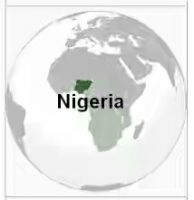The purpose of the Nigerian fiscal policy is divided into two. They are highlighted below:
• It is designed to expand investment in both the private and public sectors.
• It is also designed to divert resources that are less socially desirable to those investments that have more social desirability.
Fiscal policy is designed to help in managing the rate of growth of the Nigerian economy towards ensuring its full stability. It equally helps to maintain full employment condition. Furthermore, it is put together to help in accelerating the rate of investment and capital formation.

Some other purposes of fiscal policy are highlighted below:
• It helps in encouraging investment in various aspects of the Nigerian economy
• It equally takes part in growth and capital formation
• It helps improve on economic stability of the country
• It ensures an equitable distribution of the nation’s wealth and income
• It ensures resources are allocated optimally
• It provides acceleration for rate of economic growth and development
• It brings about price stability and
• It genders towards full employment
How effective so far?
The fiscal policy is designed to ensure full employment, but many Nigerians know that such is far from being released since the time of establishment of the policy. No one is asking for the unrealizable goal of full employment for all; all that the general populace is asking for is for the majority to be employed, a feat the policy has not achieved.
The best way to ensure the fiscal policy is able to achieve its aim is to curb private spending and to control excessive purchasing power. The government should equally make effort to compensate any deficiency experienced in private investment via public investment. With lower interest rate, the rate of employment can be improved on. Government should equally make cheaper money policy available to encourage investors borrow money and create employment.
Nigeria is not enjoying price stability in the least. The government will however be able to achieve the desired goal if some controls can be maintained on the currency.
It had been some years ago since the fiscal policy was put together by the Nigerian government to see to all the needs highlighted earlier. However, one cannot say the goals and objectives of setting up the policies have been achieved. For example, there is no specific or identifiable economic growth or development in Nigeria and this questions the possibility of the policy ever bringing the country’s economy to its optimum and desired level.
The goal of the Nigerian fiscal policy is best achieved via stable instruments, like government expenditure and interest rate. Over the years, introduction of the policy have not positively affected the interest rate at all, as it still remains high, putting off investors who may need to borrow money for business. The seeming unchanged economic situation has made many Nigerians to question the reliability of the fiscal policy in solving the present and escalating economic problems the nation is facing. Many do not believe that government policies can ever help in curtailing inflation in Nigeria.